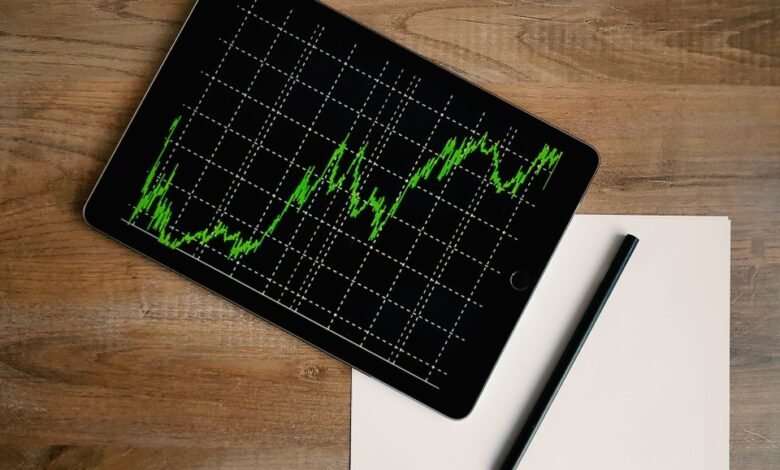Understanding the Nikkei Share Index: What It Is and Why It Matters

The Nikkei share index is a number that shows how well the top companies in Japan are doing. It helps people understand how the Japanese stock market is performing. When the Nikkei share index goes up, it means that many companies are doing well, and when it goes down, it means that some companies might be struggling.
Many people pay attention to the Nikkei share index because it can affect the economy and investments. If you want to learn more about how this index works and why it is important, keep reading.
What Is the Nikkei Share Index
The Nikkei share index is a special number that helps us see how well some of the biggest companies in Japan are doing. It includes 225 major companies, which are called “stocks.” These companies come from many different industries, like technology, cars, and food.
When people talk about the Nikkei, they often say it is like a report card for the stock market. Just like how a report card shows how a student is doing in school, the Nikkei shows how companies are doing in business. If the number goes up, it usually means the companies are doing well and making money.
Investors and traders watch the Nikkei share index closely. They use it to decide when to buy or sell their stocks. This number can change every day, which makes it exciting for people who follow the market.
Understanding the Nikkei share index can help you learn more about Japan’s economy and how it connects with the rest of the world.
How the Nikkei Share Index Is Calculated
Calculating the Nikkei share index is a bit like adding up scores in a game. First, each company in the index has a price for its stock. These prices are combined to get a total score. This score is then divided by a special number called a “divisor” to get the final index number.
Each company’s price affects the index differently. Bigger companies have more influence on the score than smaller ones. If a large company’s stock price goes up or down, it can change the Nikkei share index a lot.
It’s important to know that the Nikkei share index does not include all companies in Japan. Instead, it focuses on the top 225. This means it shows how the best companies are doing, which can be helpful for understanding the market overall.
Many people trust this index to help them make decisions about their money. Knowing how the Nikkei share index is calculated can help you see why it matters.
Why the Nikkei Share Index Matters to Investors
Investors pay close attention to the Nikkei share index because it can tell them how the stock market is doing in Japan. When the index goes up, it usually means that many companies are making profits. This makes investors feel happy and confident to invest more money.
On the other hand, if the Nikkei share index drops, it can make investors worried. They might think that companies are not doing well, and this could lead them to sell their stocks quickly. Understanding this can help investors decide the best times to buy or sell.
Many people use the Nikkei to compare how Japan’s market is doing against other markets in the world. It helps them see if they should invest in Japan or look elsewhere. By keeping an eye on this index, investors can make smarter choices with their money.
Overall, the Nikkei share index is an important tool for anyone who wants to invest in Japan.
Top Companies in the Nikkei Share Index
The Nikkei share index includes some of the biggest and most famous companies in Japan. These include brands that people all over the world recognize, like Toyota, Sony, and Honda. These companies help make Japan’s economy strong.
Toyota is known for making cars, and it is one of the most important companies in the Nikkei. When Toyota does well, it can help the index go up. Sony is famous for its electronics and entertainment, and it also plays a big part in the Nikkei share index.
Many of these companies are leaders in their industries. This means they are often the first to create new products and technologies. When they succeed, it usually reflects positively on the Nikkei share index.
Understanding which companies are in the index can give you a better idea of how Japan’s economy is doing. These top companies play a key role in shaping the market.
How to Read the Nikkei Share Index
Reading the Nikkei share index is like looking at a scoreboard. When you see the number, you can tell if the market is doing well or not. If the number goes up, it usually means good news for the economy. If it goes down, people might be concerned.
You can find the Nikkei share index number on news websites or financial apps. It is often updated in real-time, so you can see changes throughout the day. Learning how to read these numbers can help you understand market trends better.
In addition to the main number, you can also look at how different companies in the index are performing. Many websites show you which companies are going up or down. This can help you see why the index changes.
By understanding how to read the Nikkei share index, you can start to learn more about investing and the economy.
The History of the Nikkei Share Index
The Nikkei share index has a long and interesting history. It was created in 1950 to help people understand how Japan’s economy was growing after World War II. At that time, Japan was rebuilding and changing, and the Nikkei helped track this growth.
Over the years, the Nikkei has gone through many ups and downs. There have been times when it reached new highs, showing strong economic growth. There have also been times when it dropped, reflecting challenges in the market.
In the 1980s, the Nikkei share index hit a very high point, which many people remember. However, it later faced a big drop in the 1990s, known as the “Lost Decade.” This showed that markets can be very unpredictable.
Understanding the history of the Nikkei share index helps us see how Japan’s economy has changed over time. It reminds us that markets can be strong but also face challenges.
The Nikkei Share Index and Japan’s Economy
The Nikkei share index is closely linked to Japan’s economy. When the index rises, it usually means that businesses are thriving and people are spending money. This is good news for everyone.
Many companies in Japan create jobs and support families. When these companies do well, they can hire more people, which helps the economy grow. This cycle keeps going as long as the index remains healthy.
However, if the Nikkei share index falls, it can signal problems. Companies might not be making as much money, which could lead to layoffs. People may spend less, which can hurt the economy even more.
By watching the Nikkei share index, we can gain insights into how Japan’s economy is performing. It acts like a health check for the market.
Comparing the Nikkei Share Index with Other Indices
When looking at stock markets, it is important to compare different indices. The Nikkei share index is often compared to other major indices, like the S&P 500 in the United States. This helps investors see how Japan’s market stands against others.
Each index represents different countries and their companies. The Nikkei focuses on Japan, while the S&P 500 looks at the top companies in the U.S. By comparing these indices, investors can decide where to invest their money.
The performance of the Nikkei can also be influenced by what happens in other countries. For example, if the U.S. market is doing well, it might encourage investors to buy Japanese stocks, too.
Overall, understanding how the Nikkei share index compares with others can help investors make better decisions.
How to Invest Using the Nikkei Share Index
Investing using the Nikkei share index can be exciting. Many investors look at the index to decide which stocks to buy. If the index is rising, it could be a good time to invest in companies listed there.
Investors can buy individual stocks or consider index funds. Index funds allow people to invest in a group of stocks that follow the Nikkei share index. This way, they can spread their money out and lower the risk.
It’s important to do research before investing. Understanding the companies in the Nikkei share index and their performance can help investors choose wisely.
Overall, using the Nikkei share index as a guide can make investing easier and more fun.
The Impact of Global Events on the Nikkei Share Index
Global events can have a big effect on the Nikkei share index. Things like changes in the economy, natural disasters, or political events can influence how companies in Japan perform.
For example, if a major event happens in another country, it might affect Japan’s trade. This can cause the Nikkei index to rise or fall. Investors pay attention to these events because they can change market conditions quickly.
Sometimes, positive news from around the world can boost the Nikkei. Good trade deals or technological advancements can lead to a stronger index.
Understanding the impact of global events helps investors prepare for changes in the Nikkei share index.
Conclusion
In conclusion, the Nikkei share index is an important number that helps us understand how well Japan’s top companies are doing. By looking at this index, we can learn a lot about the economy and make better decisions about investing. Watching the Nikkei can be exciting, especially when it goes up, showing that many businesses are thriving.
Understanding the Nikkei share index can also help us see how Japan connects with the rest of the world. It reflects the health of Japan’s economy and can influence our daily lives. So, whether you are just starting to learn about investing or you want to know more about Japan, keeping an eye on the Nikkei is a great idea.

